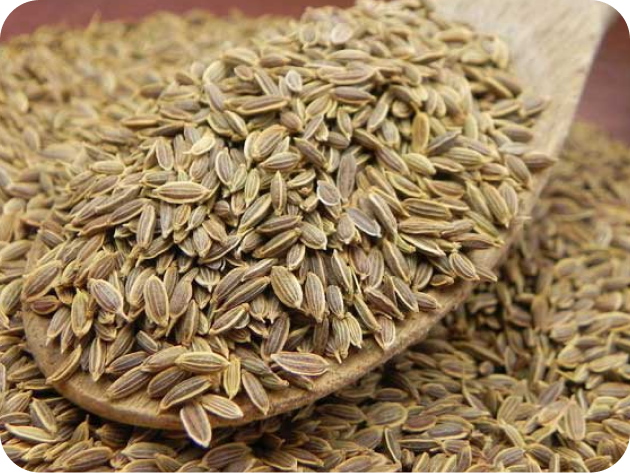
Originating in Eastern Europe, dill seeds stands as a short-lived perennial herb, celebrated fornits aromatic qualities that enhance the flavors of a multitude of dishes.Dill seeds, possessing a flavor reminiscent of caraway and the fresh or dried dill weed, are a culinary staple used as a spice. Traditionally, dill seeds were employed to soothe the stomach after meals, attesting to their historical medicinal use. Additionally, dill oil can be extracted from various parts of the plant, including the leaves, stems, and seeds.
| Scientific Name: | Anethum graveolens |
| Family: | Apiaceae (Umbelliferae) |
| Origins: | Rajasthan and Gujarat |
| Aroma: | Dill seeds release a light and fragrant aroma, reminiscent of fresh grass with a hint of citrus, imparting a refreshing note to your culinary creations. |
| Taste: | Revel in the subtle combination of mild citrus, sweet, and slightly earthy flavors, elevating a variety of dishes with their distinctive and versatile profile. |
| Dillapiol: | This compound contributes to the characteristic aroma of dill seeds, offering a unique and appealing fragrance. |
| Volatile Oils: | Dill seeds contain essential oils that add depth and complexity to their flavor profile, making them a culinary delight. |
| Versatility: | Dill seeds are a culinary gem, complementing both sweet and savory dishes. They are particularly renowned for their use in pickling and seasoning various delicacies. |
| Complementary Pairings: | Often paired with mustard seeds, dill seeds play a vital role in pickling spice blends, adding a distinctive and refreshing twist to preserved foods. |
| Conventional Grade: | Regular and Bold |
| IPM and Organic: | Japan IPM, Korea IPM, EU IPM, UAE IPM and Organic Standards |
| Purity: | 98%, 99%, 99.5%, 99.8% |
| Allergens: | Free from allergens |
| Packing: | 20/25/30/50 Kgs, PP Kraft bags with inner liner or customised packaging as per requirement. |
| Shelf Life: | 12 months, under proper storage conditions. |